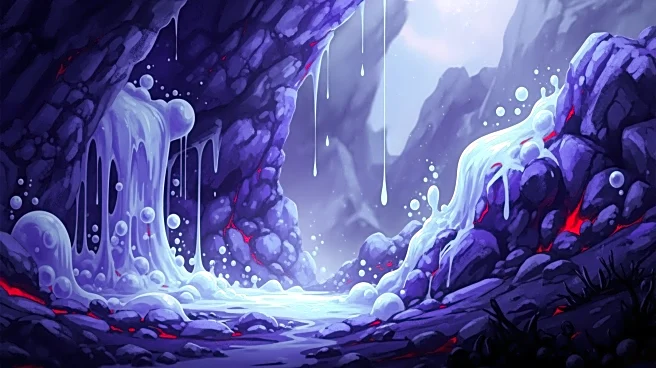What's Happening?
Researchers have discovered signs of life in a blue volcanic goo beneath the Pacific Ocean, near the Mariana Trench. The sediment, with a high pH of 12, contains fats from extremophile microbes, confirming their existence in such harsh conditions. This
discovery was made by examining sediment cores from mud volcanoes, revealing microbial life that thrives in environments with low organic carbon concentrations. The findings suggest that such habitats could resemble those where primordial life originated.
Why It's Important?
This discovery is significant as it provides insights into the resilience and adaptability of life in extreme environments, which could have implications for understanding the origins of life on Earth. It also contributes to our knowledge of Earth's biomass, as life below the seafloor plays a crucial role in nutrient cycles. The research could inform future studies on extraterrestrial life, as similar conditions might exist on other planets or moons, expanding the scope of astrobiology.
What's Next?
Researchers plan to further explore these extremophiles to understand their survival mechanisms and potential applications. This could lead to advancements in biotechnology and offer clues about life's potential on other celestial bodies. The study also opens avenues for more detailed investigations into the chemical processes that sustain life in such environments, potentially leading to new discoveries about Earth's biosphere.















